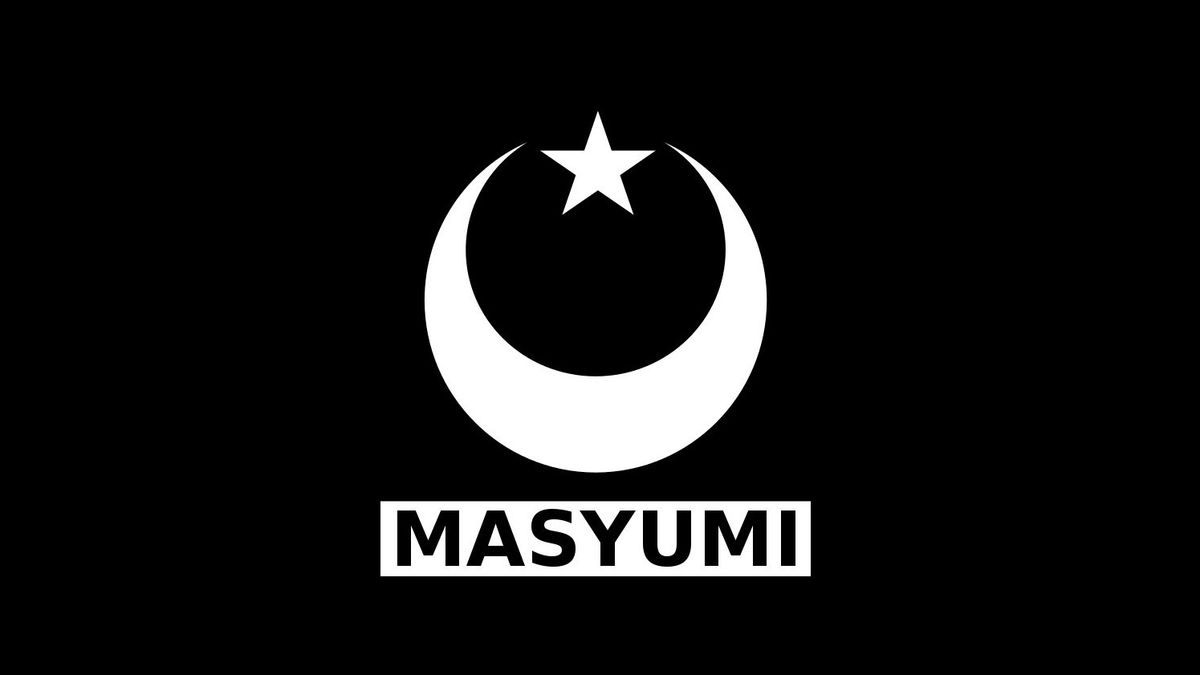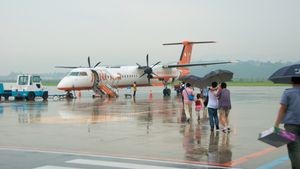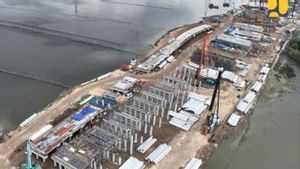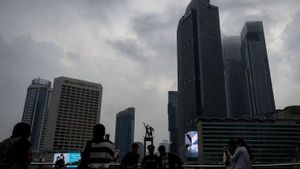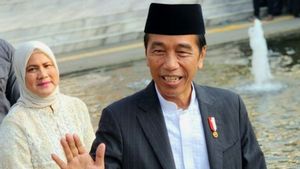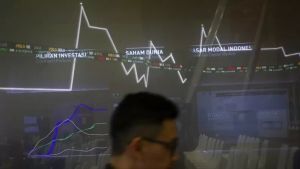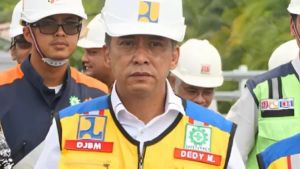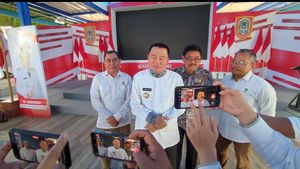JAKARTA - The Masyumi Party has returned to activity after it was declared on Saturday, November 7 or to coincide with the party's 75th anniversary. The oldest party in Indonesia is considered to have a chance in the 2024 General Election (Pemilu) even though it is predicted that it will face tough challenges.
"The challenge for Masyumi is currently very tough because it was different from the past," said Executive Director of the Indonesia Political Review (IPR), Ujang Komarudin, when contacted by VOI, Monday, November 9.
He said Masyumi had a long history, from the time it was founded, to the golden age, to the dissolution of President Soekarno. This history must be studied and controlled by current Masjumi Party figures.
Ujang continued, Masyumi's chances of success in the Indonesian political universe also depended on the new leaders and leaders who raised this party. Including the strategy they will use because currently there are several Islamic-based parties that have a mass base and sit in parliament, such as the United Development Party (PPP), the National Awakening Party (PKB), the Prosperous Justice Party (PKS) and the National Mandate Party ( PAN).
"This also includes what Masyumi offers to the people. What makes it different from the existing Islamic parties," he said.
"So the chance is still there but it must be able to compete with the parties that already exist today," he added.
Furthermore, to keep Masyumi's chance to fight in the election, Ujang reminded that this party could evolve and not refer to the previous point of view which was deemed not suitable with the present.
"The current perspective is a millennial perspective. So the past perspective must be energized with a contemporary perspective," he said.
Meanwhile, Executive Director of the Indonesia Political Opinion (IPO) Dedi Kurnia Syah said Masyumi might have the opportunity to participate in the 2024 General Election because the time is still quite long. However, he is skeptical the party can win the minimum votes to place representatives in parliament.
At least there are two things that Dedi considered complicating the party's steps, first is the lack of solid votes of Islamic voters which are now being contested by political parties.
"Second, even though Masyumi to this day has voter affiliation, say voters from West Sumatra who are thick with Masyumi nuances, it's just that today they have converted to PKS and are comfortable with that choice," he said.
So, if this party wants to widen their chances for the 2024 elections, Masyumi must be able to unite political Islamic groups that have not been political, such as the Islamic Defenders Front (FPI), sympathizers of the 212 movement, and trying to embrace Amien Rais.
According to Dedi, embracing Amien Rais, who is currently working to establish the Ummat Party, is considered as a way for Masjumi to strengthen their steps towards the upcoming 2024 General Election. "This kind of collaboration allows Masyumi to get a minimum percentage," he said.
It is known that the Masyumi Party declaration was held at the Da'wah Council Building, Central Jakarta. The reading of the declaration was led by A. Cholil Ridwan, the Head of the Preparatory Efforts of the Islamic Ideological Party (BPU-PPII).
"We, the undersigned, declare the reactivation of the Indonesian Islamic Political Party called 'Masyumi'," Cholil said in a virtualized declaration.
In the declaration, Masyumi Party promised to fight for the sake of implementing Islamic teachings and laws in Indonesia.
Furthermore, during the declaration they also announced the candidates for the Masyumi Party Syuro Council.
The candidates for the Syuro Council include; former Corruption Eradication Commission (KPK) Adviser Abdullah Hehamahua, former Minister of Forestry Malam Sambat Kaban, MUI Wasekjen Tengku Zulkarnain, Cultural observer Ridwan Saidi, to Kiai Abdul Rosyid Syafei.
Masyumi was originally declared in 1945. This party was an association of various Islamic organizations in various regions in Indonesia during the Japanese colonial period such as Nahdlatul Ulama (NU), Muhammadiyah, Perti, PSII and others. They were allowed to revive the Indonesian A'la Islamic Council (MIAI) by the Japanese Army on 4 September 1942.
Then after the Proclamation of Indonesian Independence, on November 3, 1945 through Government Declaration No. X, the government recommends forming political parties. So political parties were born and one of them was Masyumi.
Masyumi was founded by several Islamic figures such as Agus Salim, Abdul Kahar Muzakhar, Soekiman Wirosandjojo, Ki Bagus Hadikusumo, Muhammad Natsir and others. According to the Masyumi Articles of Association passed by the KUII in 1945, they have the aim of upholding the sovereignty of the Republic of Indonesia and the Islamic religion and implementing Islamic ideals in state affairs.
Furthermore, in 1960, President Soekarno once banned the Masyumi Party. The regime at that time accused this party of protecting the Revolutionary Government of the Republic of Indonesia (PRRI).
Soekarno then issued Presidential Decree No. 200 of 1960 dated 17 August 1960 to dissolve this party. Subsequently, on September 13, 1960, the Masyumi Central Executive declared that the Masyumi Party was dissolved.
The English, Chinese, Japanese, Arabic, and French versions are automatically generated by the AI. So there may still be inaccuracies in translating, please always see Indonesian as our main language. (system supported by DigitalSiber.id)
